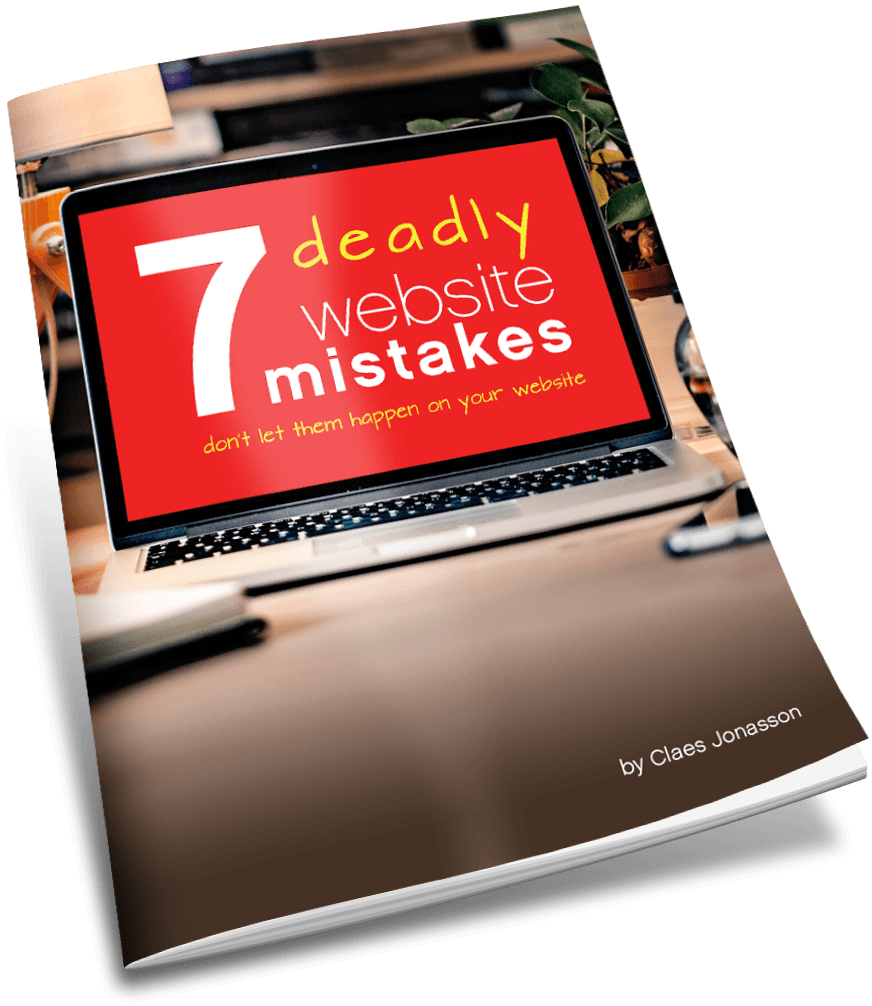3 in ’23
It’s a new year, full of opportunity, wide open in front of us.
Before rushing off into that wide-open, here are 3 areas to review and take care of on your website, so it can serve you optimally in 2023:
- Privacy
- Security and tech
- Current, relevant and aligned content

Privacy
Online privacy is a big thing in 2023. Huge.
In the US, 6 states are adding online privacy laws in 2023. That’s in addition to states that already had them.
Many other countries have privacy laws as well. In Europe, GDPR (General Data Protection Regulation) details how personal data can be collected and used. Australia and Canada have similar laws. To name just a few.
Before we continue, it’s important to understand a unique aspect of online privacy regulations. It doesn’t matter where your website or business are located. The key is where your visitor is from.
As an example, a US website that attracts (and does business with) European customers will need to comply with GDPR.
Similarly, a website in Florida will need to comply with California’s privacy laws, because site visitors could be from the Golden State.
Effectively that means most websites need to comply with online privacy laws from all around the world. Not an easy task since those laws all differ.
The website privacy policy
Every website needs a privacy policy. On some websites, that page seems to be a bunch of nice words about how they respect your privacy and don’t share your info ever. (That last part will likely not be true, even if it sounds good.)
A website’s privacy policy needs to state what personal information is collected and how it’s used. As well as how the website complies with all applicable laws in this area.
Personally Identifiable Information
Privacy laws are all about personally Identifiable information (PII). The most basic definition of PII is any information that permits the identity of an individual to be reasonably inferred by either direct or indirect means. Yeah, that could be a lot of stuff.
Direct PII — items like name, email, physical address, and phone number. You should collect what’s needed in your business for serving your customers. Don’t collect info just because you can.
Indirect PII — items like IP address (the address a computer uses to connect to the Internet), geolocation data, gender, race, age. To name just a few.
But wait, there’s more:
Your website probably uses some 3rd party services. So you need to understand how they collect and use PII of your website visitors.
For instance, Google Analytics has landed in court in Europe over collecting PII as part of the analytics gathering. And Google fonts, which are used on many websites and often loaded from Google’s servers as needed, have been found to collect PII.
That means using services like that could get your website in trouble with some online privacy laws.
The new web design trend: Privacy first
Until now web design really hasn’t paid much attention to privacy issues. That’s changing.
Any new website should be designed following a privacy first approach. Which means that attention is paid at every stage of website design and development to what PII is collected and how it’s used. Because the goal is to collect the right amount of information so visitors will have a great experience on the website and can do business with us. While at the same time not collecting anything that’s not needed and also not putting anyone’s privacy at risk.
Action points:
- Does your website privacy policy comply with all applicable laws in 2023? Does it need updating?
- Review what PII your website collects and how it’s used. Include both direct and indirect. The goal is to collect what’s needed and no more.
There’s much more to cover about online privacy laws and websites. You can look forward to additional articles on this subject as 2023 unfolds.

Security and tech
2022 was a year with weekly security issues being reported. 2023 will be no different.
One business owner I talked with about her website’s security shrugged her shoulders and declared that if her website is ever hacked, she’ll just rebuild it from scratch. So to her no real problem.
Except it is. At least if her business depends even a little bit on that website to conduct its business.
A broken, hacked or totally crashed website will mean that customers can’t connect with the business online. That’s lost business. Lost income.
Plus, given her plan, she’s now be working on rebuilding that website with the business in upheaval. Cost with no or diminished income. A recipe for disaster.
Of course she might be counting on that nothing bad will ever happen to her website. Thinking that hackers only go after large company websites and hers is way too small for anyone to care about.
I wish that was true. That said, I’ve watched the firewall of one of those “small, insignificant websites” being hammered by hackers. Clearly they didn’t care it was just a tiny website.
It’s up to you to provide a secure and smooth experience for visitors
We simply can’t afford to ignore security and tech in 2023. We must keep our websites up-to-date and secure. It’s really not that hard. Other than it needs a plan and ongoing commitment.
It’s tempting to think that automatic updates will take care of any issues. However, it happens more often than we like to think of it that an update breaks something on the existing site. Or sometimes an update has an issue and needs to be rolled back
Maybe worst of all are plugins or software that are no longer supported. Because there are no updates, you might think they’re okay when in reality the plugin or software will just get more and more outdated and vulnerable.
By the way, when considering a website-as-a-service solution (like Wix, Squarespace and others), it’s tempting to think that they have all that update and security stuff covered. Which may be the case. Or may not be. I’ve unfortunately seen such solutions fail over the years. So you should definitely find out how they keep things updated and secure before investing in building your website on that platform. We’re seeing with some online services that security was not their first priority.
As a web developer, I follow online security news and get updates as new vulnerabilities are reported. That helps me make informed decisions when managing websites and keeping them secure. If you manage security and updates for your own website, you need to do the same.
Action points:
- Decide how you will make sure your website is kept up-to-date and secure:
- Do it yourself — Invest the needed time and resources in regularly (weekly) running updates. Install reputable security software and ensure it’s properly configured.
- Done for you — There are vendors who provide website maintenance and security. Be sure you understand exactly what’s included in the package and how the vendor will handle a security incident with your website.

Current, relevant and aligned content
In 2023 it’s more important than ever that your website is in fact current, relevant and aligned.
- Current — Content on the site (text, images, video and so on) is up-to-date and doesn’t look or feel dated.
- Relevant — The website and content is relevant for site visitors. For instance if you’re looking for a new electric car, a car dealership website that features only gasoline powered vehicles will not feel relevant. Event though it’s in the ‘car’ category.
- Aligned — Does the website represent the business well? Do I get a good understanding of what it’s like buying from or working with this business? Is my experience on the website essentially the same as when I talk with the business owner in person?
Review your website
When was the last time you reviewed your website? I mean really checked it out. Like someone who’s never visited it before.
Because building a website is a significant project, it’s understandable that when it’s all done, we want to be able to just focus elsewhere.
Besides, the website is not going away.
Or is it? Read about the downward spiral of doom that so many websites go through in Your website — the beginning of a beautiful friendship.
That’s why I asked when you last reviewed your website. And if the website is current, relevant and aligned.
After all, things change in business. Our customers (actual and prospective) want to see new things when they come to our websites.
Even if that (older) website still brings in sales, it could quite possibly do better — if it truly reflected your business today and effectively connected with customers today.
When website age matters
If your website is
- Less than 3 years old — The tech should be current. If all the content was created new for the website, it too is likely to be mostly current. It’s still a good idea to review the site at least annually to ensure that everything is truly up-to-date. Is that new product or service included? Is all contact info correct? Anything other recent changes?
- 3-5 years old — Because businesses change and customer needs change, if your website is in this range, it’s time to do a thorough review of all the content. And make any updates needed so it feels fresh and inviting. Some of the tech may also need updating or replacement.
- More than 5 years old — That’s almost an eternity in internet terms. A lot of things will have changed in the underlying technology. This is where it makes a lot of sense to consider a complete redesign. Starting with a blank page, you can have a website built with the most current tech stack. Plus ensuring that every piece of content on the website truly reflects your business today. So that customers today will flock to it.
Standing out in a noisy world
In 2023 there’s more noise than ever in the world, on- and offline.
A business that wants to thrive can’t afford a website that is out of tune. Visitors need to clearly see who we are and what we offer. While on the website they must be able to get to know, like and trust us. And decide if the product or service we offer is exactly what will meet their needs and we’re the person they want to work with.
A website that is regularly updated can serve your business well for a long time. Visitors will come and come back, delighted that there are new things to discover.
A neglected website all too quickly becomes something you avoid and visitors use only if they have to. Don’t let that be your website.
Action points:
- Block out time to visit every nook and cranny of your website in the next day or two. Take notes about what needs updating. Then ensure that also gets done. The sooner, the better.
- Consider asking someone else to review your website for you. Someone who isn’t on the inside of your business. Someone who is able to look at the website with fresh eyes. Ask them to take notes and then act on those notes.
Wrapping it up
3 key action areas for your website:
- Privacy
- Security and tech
- Current, relevant and aligned content
Take care of them and your online visitors will have a good experience on your website this year. Ignore them at your own peril.
Maybe you look at one or more of these key areas and conclude that you need some help. Additional insight. Fresh eyes. I can help with that. Click here to schedule a free 20 minute strategy Zoom call with me. You’ll come away with increased clarity and next action steps to move you forward.
Never miss out!
Get an email update every time I publish new content. Be the first to know!

